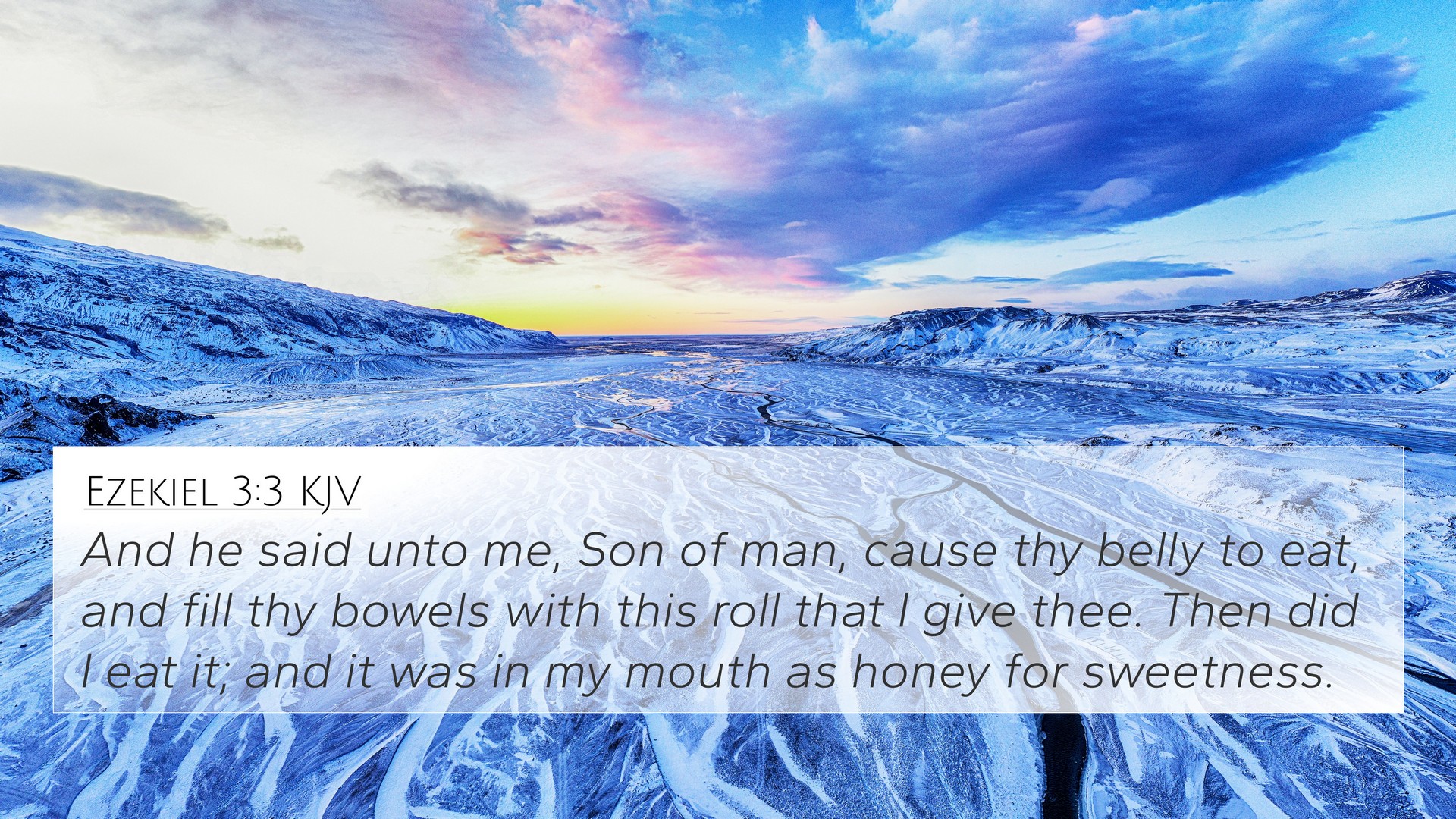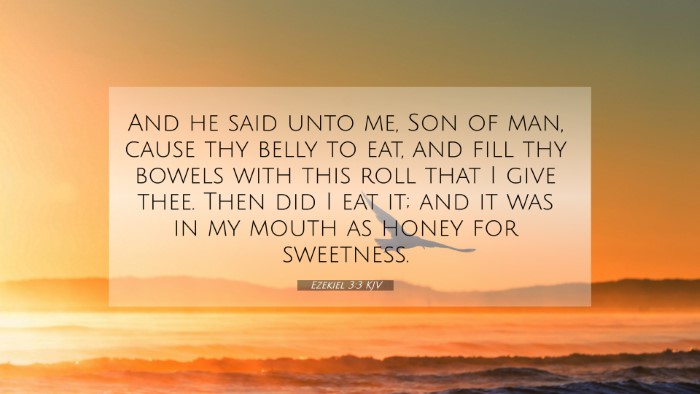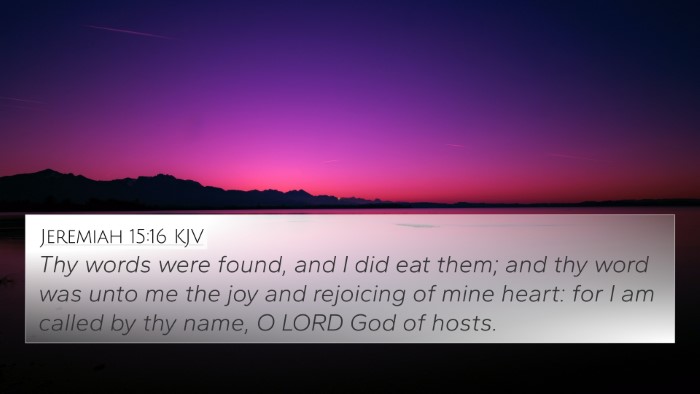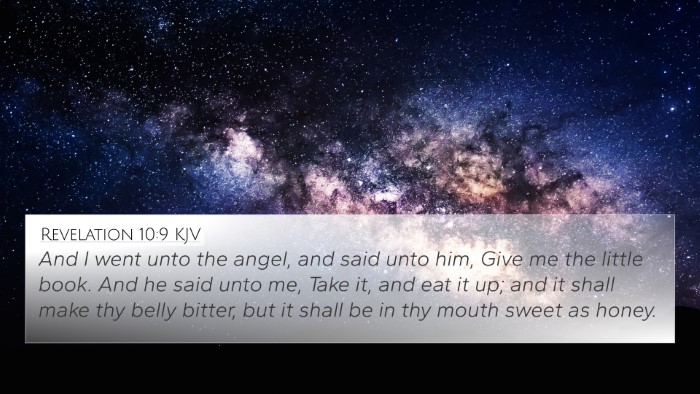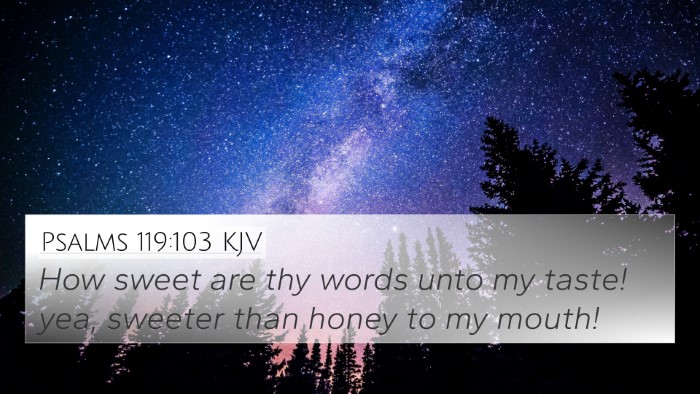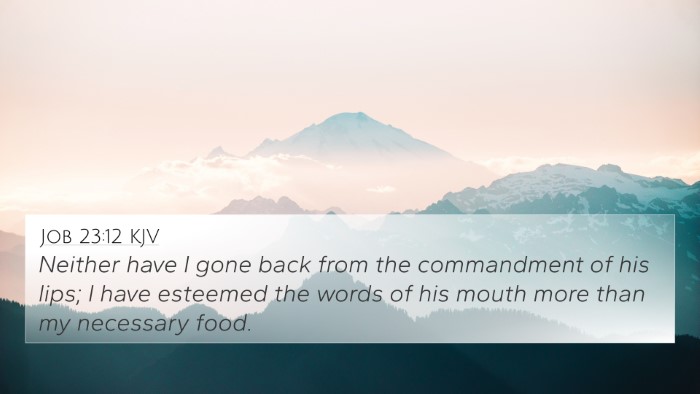Ezekiel 3:3 - An In-depth Analysis
Bible Verse: Ezekiel 3:3 - "And he said unto me, Son of man, cause thy belly to eat, and fill thy bowels with this roll that I give thee. Then did I eat it; and it was in my mouth as honey for sweetness."
Context of Ezekiel 3:3
The book of Ezekiel is a prophetic work, emphasizing God's messages to Israel during a time of turmoil and exile. Ezekiel, as a prophet, receives various symbols and messages that convey profound truths about God's intentions and the duties of His people. This verse occurs within a significant prophetic calling, illustrating the nature of God’s word and its effect on the prophet.
Meaning and Interpretation
The act of eating the scroll signifies a deep internalization of God’s message, emphasizing the importance of absorbing His truths. The sweetness of the scroll symbolizes the joy and pleasure found in God's revelations, even when the content may carry a weighty or challenging message.
Insights from Commentators
- Matthew Henry: He emphasizes that the scroll represents the word of God, which must be digested by the prophet. The "sweetness" indicates that while God’s law can be tough in its demands, it is ultimately fulfilling and delightful to those who seek to walk in His ways.
- Albert Barnes: Barnes notes that the “roll” represents prophetic revelations that are both comforting and admonitory. The act of eating signifies that the message must reside within the prophet, allowing him to communicate effectively to others.
- Adam Clarke: Clarke points out that the sweetness of the scroll reflects the blessings of obedience to God's word and reinforces how divine revelations can nourish the soul despite the stern nature of some prophetic messages.
Thematic Connections
This verse sets a foundational understanding of how God's word is perceived—both its inherent sweetness and the necessity of assimilation into one's life. It serves to connect numerous themes present in scripture:
- The divine call of prophets: Similar to Isaiah's commission (Isaiah 6:8) where the prophet responds, "Here am I; send me."
- The joy of God's word: The Psalms denote the sweetness of God's law (Psalm 119:103).
- The nourishment of spiritual sustenance: Paralleled by Jesus referring to Himself as the 'bread of life' (John 6:35).
- Obedience to God's message: Reinforced by Jeremiah's experiences (Jeremiah 15:16)—accepting God's word with joy even amidst trials.
- God's revelations: Similar insights are evident in Revelation 10:9-10, where John eats the same scroll and experiences a juxtaposition of bitterness and sweetness.
- The transformative power of God's message: Intimately connected with Romans 12:2, which speaks of renewal through truth.
- Feasting on God's word: A metaphor echoed throughout the scriptures, such as in Matthew 4:4, affirming that man does not live by bread alone.
Cross-Referencing Biblical Texts
To fully appreciate Ezekiel 3:3, one can employ various bible verse cross-references relevant to its themes:
- Isaiah 6:8 - The call of the prophet
- Psalm 119:103 - The sweetness of God's Law
- John 6:35 - Jesus as the bread of life
- Jeremiah 15:16 - The joy of God's word
- Revelation 10:9-10 - Eating the scroll
- Romans 12:2 - Transformation through truth
- Matthew 4:4 - Living by the word of God
Understanding the Impact of the Prophet's Role
Through Ezekiel’s experience, we are reminded of the serious responsibility that comes with being a vessel for God's message. This experience speaks to all believers about the importance of internalizing God’s truths and sharing them with others. It underlines the fact that while the message may challenge or convict, it also brings joy and sustenance.
Conclusions on Ezekiel 3:3
In summary, Ezekiel 3:3 serves as a profound reminder of the dual nature of God's word—its sweetness and occasional bitterness. It encourages believers to engage fully with scripture, digesting its content thoroughly to find the life-giving essence of God’s truths.
